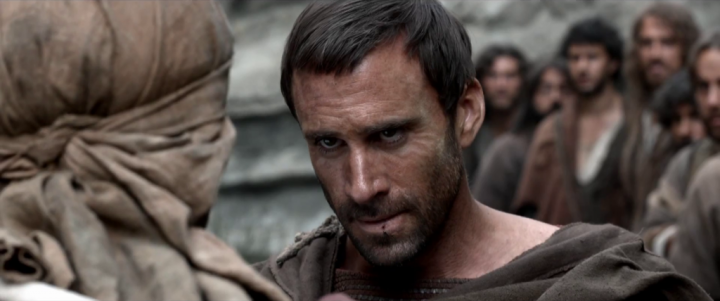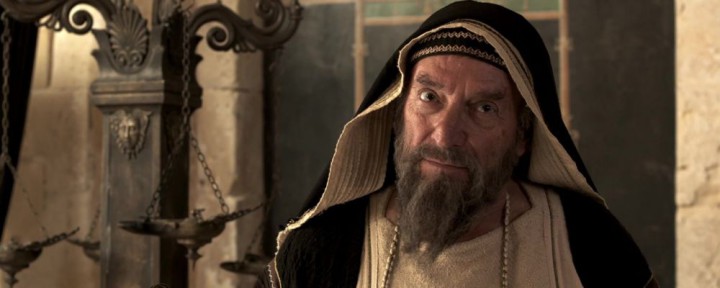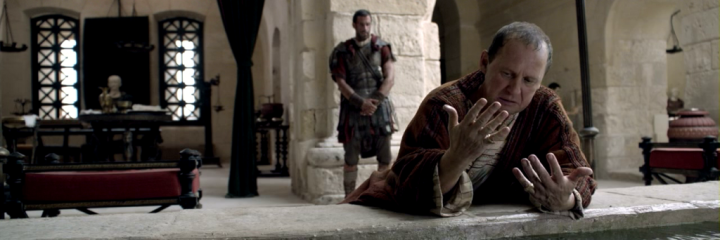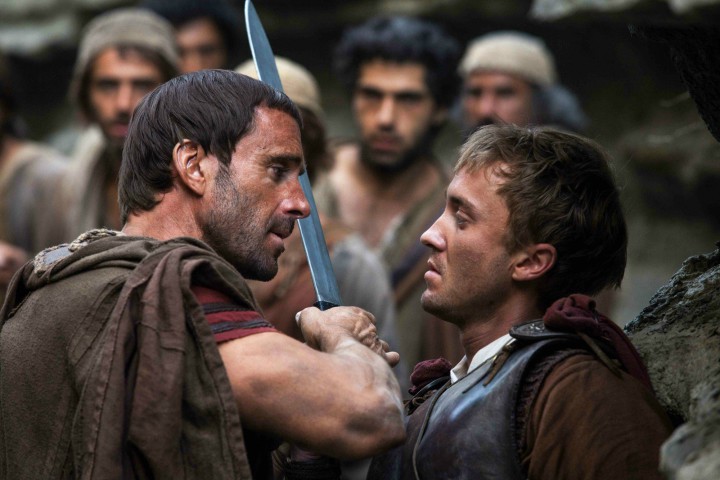It would be easy — and even tempting — to overstate the case for Kevin Reynolds’ Risen, if only because it’s so much better than every other faith-based movie I can think of. It looks like a real movie and has a reasonably good cast, as well as a solid, if not especially inspired, director. It starts out offering a slightly offbeat take on the Christ story, presenting it as a Roman crime drama procedural: Clavius (Joseph Fiennes), the tribune, is charged by Pontius Pilate (Peter Firth) with making sure the body of Christ (or Yeshua) doesn’t disappear — and then to find it when it does — so Yeshua’s followers can’t claim he rose from the dead. We all know how this has to play out, so it really doesn’t work as a mystery, but it’s still a little different from the usual run-of-the-scriptures movie. It also gets points for a certain amount of humor (I think most of it was intended) and for casting Maori actor Cliff Curtis as Yeshua — a nice break from the usual Anglicized Jesus. So far so good — so far as it goes.
Let’s be perfectly honest, it’s not that hard to make a better movie than, say, God’s Not Dead (2014), so in itself being better than the usual faith-based movie isn’t that much of an accomplishment. Putting that and the police procedural aspect aside, what we ultimately have is mostly no better or worse than a 1950s Biblical epic — an economical one at that — of the kind George Clooney is supposedly the star of in Hail, Caesar!. It’s not so much less campy than the 1950s model, it’s just the clichés have changed with the times. Where once these movies featured DeMille-like spectacle (something clearly beyond the budget of Risen), we’re now treated to disciples who look like they were recruited from touring companies of Jesus Christ Superstar and Fiddler on the Roof — a jolly mix of biblical hippies and stock Yiddish theater types. It’s not that they’re particularly believable, but that we’re used to them. Physically, the movie often resembles Norman Jewison’s film of Jesus Christ Superstar (1973) since it, too, is mostly played out against natural sand and rock landscapes. (Here it feels more like a financial issue than an aesthetic choice.) Otherwise, it’s a bunch of generally too-clean people, with remarkably good teeth, and a hero from 33 A.D. who manages to retain that manly three-day-beard growth throughout the movie.
Risen is at its best early on, with Clavius merely trying to carry out Pilate’s orders. There’s some nice shading to his character in these scenes, but what sticks with you the most is the sense of a strange kind of ancient world cops-and-corruption yarn featuring Clavius as the overworked detective and Pilate as his grumpy, results-driven boss. This almost works — at least for a while — and it has its share of cynical humor. When Pilate wants results before being subjected to another visit from Caiaphas (Stephen Greif) and his “pack of raving Jews,” no sooner has he made the complaint than Caiaphas enters the scene remarking, “Too late.”
There’s also a remarkably cynical bit where Clavius produces a badly decomposing corpse with the requisite wounds that they could palm off as Yeshua. But the film has its faith-based mandate and wants to toss in as much Bible story as possible — if only by way of seasoning. Yeah, Pilate will wash his hands, because that’s what Pilate does. But there’s no motivation, because this Pilate is unconcerned with anything, apart from having everything in order for the impending visit of the Emperor Tiberius.
What the film is after, of course, is Clavius dealing with the quandary of having “seen two things which cannot reconcile: A man dead without question, and that same man alive again.” And that might have made for compelling drama, but not here, where it’s all too easy and obvious. There’s never much room for doubt, so there’s never much reason to care. It’s a done deal from the onset — and not just because the movie is faith-based, but because the narrative is too easy and the mystery (such as it was) is dispelled too soon. I’m sure it will play OK with its target audience, but it’s unlikely persuade the unconverted. Then again, I’m not sure what that target audience will make of a description of crucifixion that evokes waterboarding (“It’s like trying to breathe through a wet cloth”). In the end, it’s better than most of its brethren, but not the drama of faith it might have been. Rated PG-13 for biblical violence, including some disturbing images.









“better than every other faith- based movie I can think of” just might wind up on a DVD cover one day.
Quelle thought!